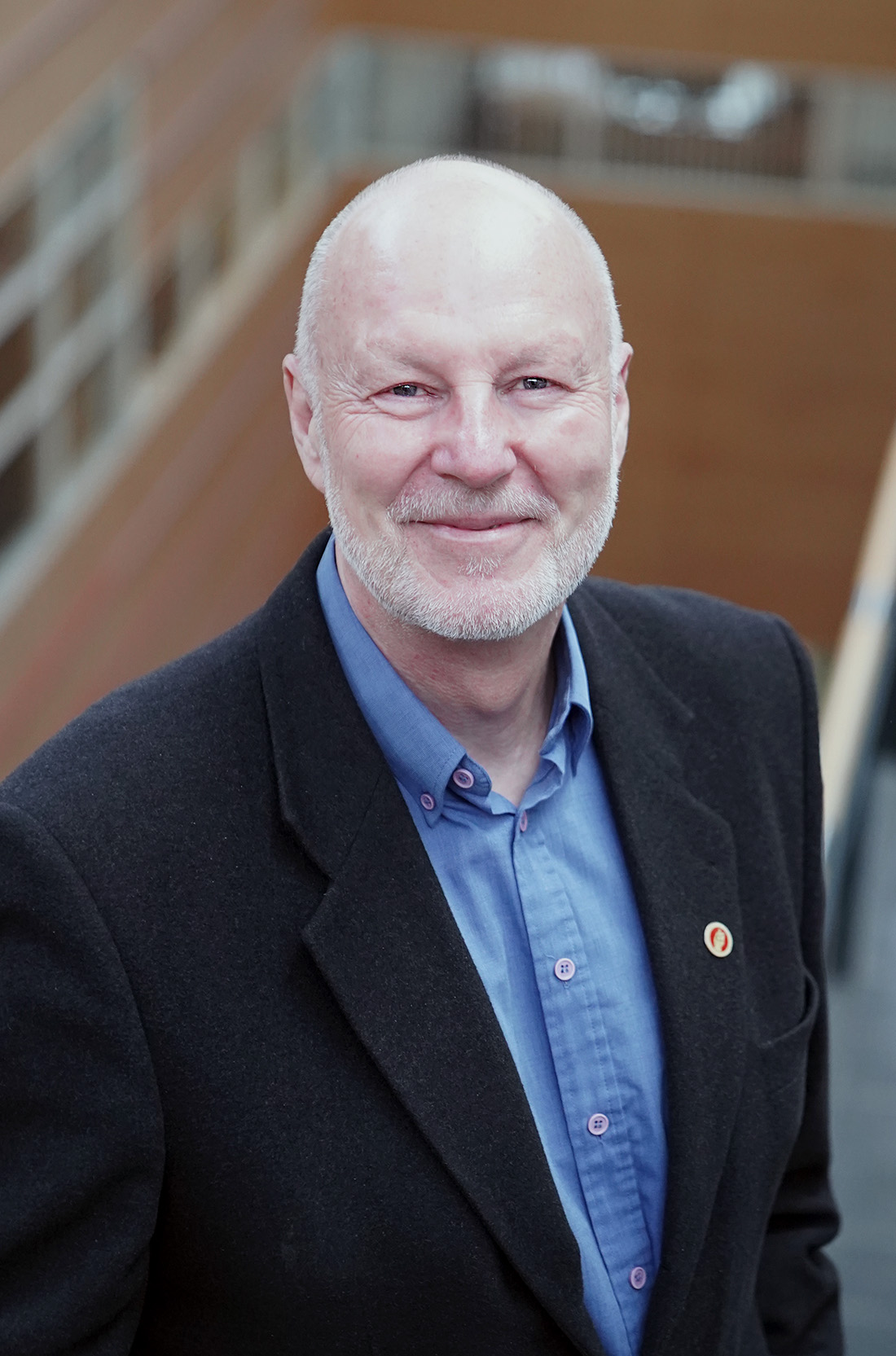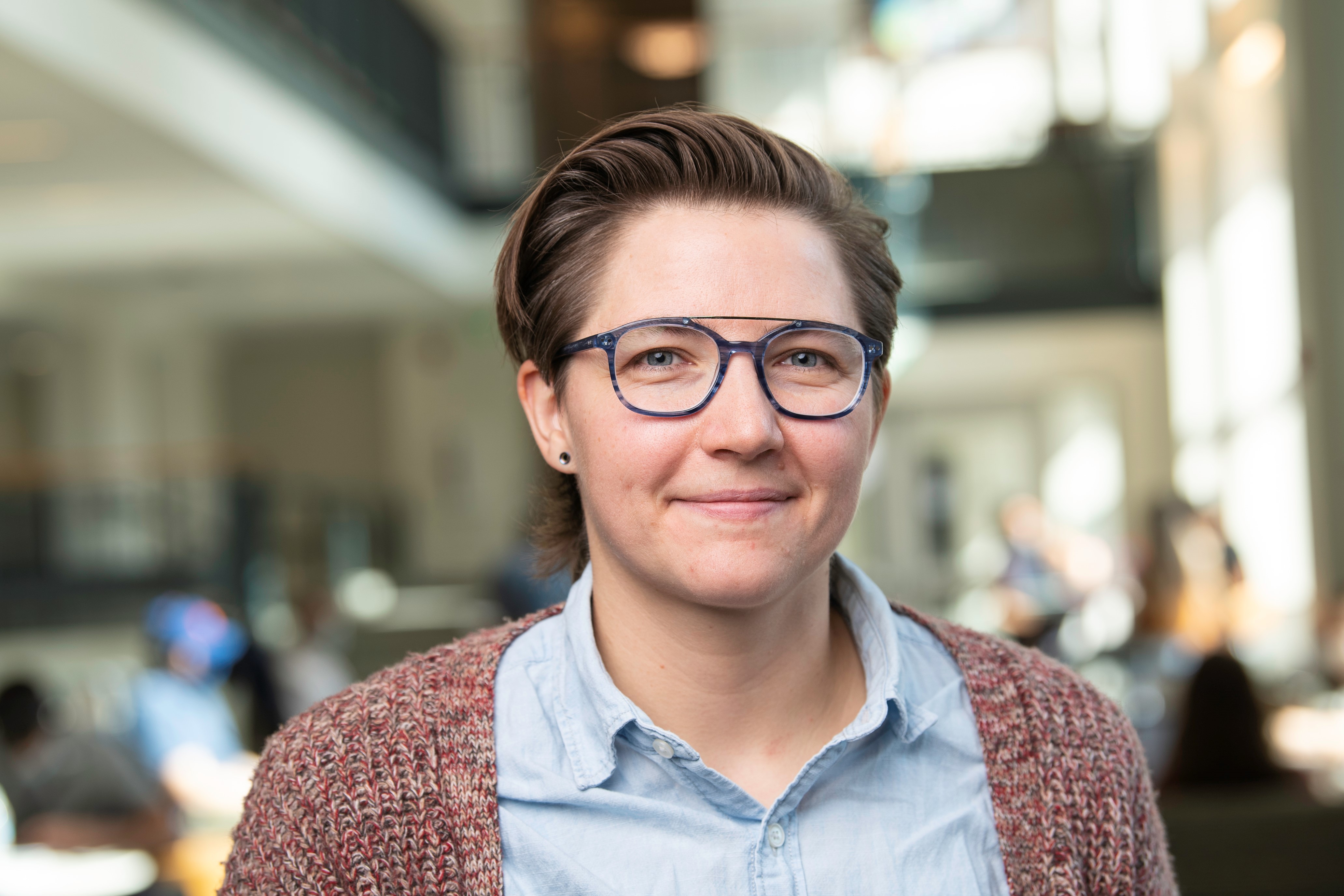2024 Fellows of the Society for Text and Discourse
The following members were inducted as fellows of the Society for Text and Discourse at the opening ceremony on Wednesday, July 17, 2024.
- Raquel Cerdan, University of Valencia, Spain
- Raymond Mar, York University, Canada
- Matthew McCrudden, Pennsylvania State University, USA
- Rod D. Roscoe, Arizona State University, USA
- Helge I. Stromso, University of Oslo, Norway
2024 Fellows Selection Committee: Jean-François Rouet (Chair), M. Anne Britt, Kate Cain, Panayiota Kendeou. Fellow status is awarded to Society for Text & Discourse members who have made sustained outstanding contributions to the science of their field in the areas of research, teaching, service, and/or application. Fellows’ contributions have enriched or advanced an area encompassed by the Society for Text & Discourse on a scale well beyond that of being a good researcher, practitioner, teacher, or supervisor. The official list of current ST&D fellows can be found at https://www.societyfortextanddiscourse.org/fellows/
The program includes an address by recipent of the Distinguished Scientific Contribution Award

Text Comprehension in the Digital Age:
What’s Justification Got to Do with it?
Ivar Bråten
University of Oslo
The program includes an address by recipent of the 2023 Tom Trabasso Young Investigator Award

Disentangling the relationships between our thoughts,
language, and behaviors
Caitlin Mills
University of Minnesota
2024 Tom Trabasso Young Investigator Award
Kathryn S. McCarthy, Georgia State University
Dr. Kathryn S. McCarthy is an Associate Professor of Educational Psychology in the Department of Learning Sciences at Georgia State University. Here, in her Disciplinary Comprehension Lab, Dr. McCarthy works to help adolescents and adults to become better students, workers, and citizens through the examination of processes and strategies which support learning, what individual differences affect comprehension and learning, and how advances in technology can be used to make learning more effective and equitable.
Dr. McCarthy will give an address as the recipient of the 2024 Tom Trabasso Young Investigator Award at the 35th annual meeting of the Society for Text & Discourse in Padova, Italy to be held in July of 2025.
2024 Tom Trabasso Young Investigator Award Committee: Panayiota Kendeou (Chair), Anne Britt, Matt McCrudden & Jean-Francois Rouet. This award goes to an outstanding young investigator who embodies Tom Trabasso’s spirit of mentoring young scholars and creating a supportive context in our Society. Recipients have shown exceptional and innovative contributions to discourse research and demonstrated superior promise as leaders in the field. The list of past winners of the Tom Trabasso Young Investigator Award can be found at http://www.societyfortextanddiscourse.org/awards/
2024 Graduate Student Research Award
Tiana V. Simovic, University of Toronto, Canada
Deep Pragmatic Reasoning Guides Perspective Computations in Discourse (with Craig G. Chambers)
Recent work indicates that in, e.g., “Madeline [told/asked] Anna [that/if] she remembers when the lecture starts”, readers use perspective reasoning to judge that SHE=Madeline (subject) with tell-that and Anna (object) with ask-if. Could this effect arise from shallow lexical cues from TELL/ASK? Expt. 1 showed readers use global sentence information and not lexical cues. Expts. 2a-b showed preceding context can compel readers to ‘reverse’ the above patterns, further demonstrating the role of full-blown perspective reasoning.
2024 Undergraduate Student Research Award
Jamie Suh-Hyun Kim, Northwestern University, USA
Testing the Generalizability of Source Expertise and Vested Interest Influences on Retraction Believability (with Josie Holohan, Mandy Withall, & David Rapp)
People can refer to and endorse causes even after those causes have been explicitly retracted. Recent evidence suggests that retractions are more effective when they are provided by expert as compared to non-expert sources, and when sources show no vested interest in the situation as compared to when they do. We attempted to replicate these findings with a new and larger set of materials than has traditionally been employed to study so-called continued influence effects.
2024 Research Awards Committee & Award Descriptions
Rod Roscoe (Chair), Sarah Carlson, Alexia Galati, Raymond Mar, & Mike Wolfe
The Jason Albrecht Outstanding Young Scientist Award honors the memory of Jason Albrecht, a promising young text and discourse researcher who passed away in 1997. The award recognizes an outstanding paper based on a recently defended doctoral dissertation. The Graduate Student Research Award (formally called the Outstanding Student Paper Award) recognizes quality in predissertation work that is predominantly that of a graduate student. The Undergraduate Student Research Award recognizes quality in work that is predominantly that of an undergraduate graduate student, or research to which the undergraduate student contributed a significant amount of effort and support. Further details and previous winners of each award can be found at https://www.societyfortextanddiscourse.org/awards/
2024 Diversity and Equity Travel Award
Lisa Zacharski, University of Freiburg
Does the use of non-orthographic gender-fair forms impair the readability of texts? Insights from an eye-tracking study (with Tim Sudermann, Sarah Kapp, & EvelynC. Ferstl)
The gender star has gained popularity as a nonbinary gender form in German. However, its opponents claim that its non-orthographic form impairs readability. We conducted an eye-tracking study to test how gender form (star vs. binary capital-I vs. masculine) influences the readability, comprehensibility, and memory of newspaper articles. Participants needed significantly longer to correctly answer comprehension questions after star form texts (vs. capital-I). A fine-grained analysis of eye-movement patterns will be presented at the conference.
2024 Diversity and Equity Travel Award Committee & Award Descriptions
Sarah Carlson (chair), Laura Allen, Kate Cain, Raymond Mar, & Rod Roscoe
The purpose of the Equity and Diversity in Text and Discourse Award is to promote diversity within the Society for Text and Discourse by supporting research on Text and Discourse related to diversity as well as research by individuals from underrepresented groups. Projects are eligible for consideration for this award if they feature diversity-related variables (e.g., race/ethnicity, gender, culture, sexual orientation, language differences, socioeconomic status and/or religiosity. Other aspects of diversity may be considered), or if the Lead Author is a member of an underrepresented group, including but not limited to racial and ethnic minorities, first-generation college students, LGBTQ+ individuals, and individuals with disabilities. These awards are intended to facilitate the research of individuals from groups that are underrepresented in our field, as well as research about issues of potential interest and importance to such groups. More information can be seen here.
2024 Walter Kintsch Student Travel Awards
The Society for Text & Discourse is plesaed to announce that the student travel award program has been renamed in honor of Walter Kintsch.
The following students and recent graduates received travel awards to support their in-person attendance at ST&D 2024
|
Varun Athilat |
Victoria Johnson |
Eleanora Pizzigallo |
|
Emily Buchner |
Yewon Kang |
Angelica Ronconi |
|
Joseph Burey |
Catherine McGrath |
Justine Scattarelli |
|
Martina Capurro |
Victoria Johnson |
Christopher Steadman |
|
Katerina Christhilf |
Yewon Kang |
Virginia Troemel |
|
Rebecca Dolgin |
Phuc Xuan Nhi Nguyen |
Xingchen Xu |
|
Lauren Flynn |
Puren Öncel |
Eleanor Fang Yan |
|
Tanner Grubbs |
Jessica Owens |
Lisa Zacharski |
2024 Student Travel Award Committee: Alexia Galati (chair), Matt McCrudden, & Panayiota Kendeou.
2024 FABBS Early Career Impact Award
Kathryn S. McCarthy, Georgia State University
The Early Career Impact Award is presented to early career scientists of FABBS member societies (see FABBS membership) who are within ten years of completing their PhD and recognizes scientists who have made major contributions to our sciences.
The purpose of this award is to recognize scientists who have made major research contributions to the sciences of mind, brain, and behavior. The goal is to enhance public visibility of these sciences and the particular research through the dissemination efforts of FABBS in collaboration with the member societies and award winners. Nominations are encouraged for individuals who have made outstanding research contributions, especially those who have also increased awareness of science through outreach activities to the public (e.g., community talks, high school demos) or communication with the media (e.g., interviews, blogs).